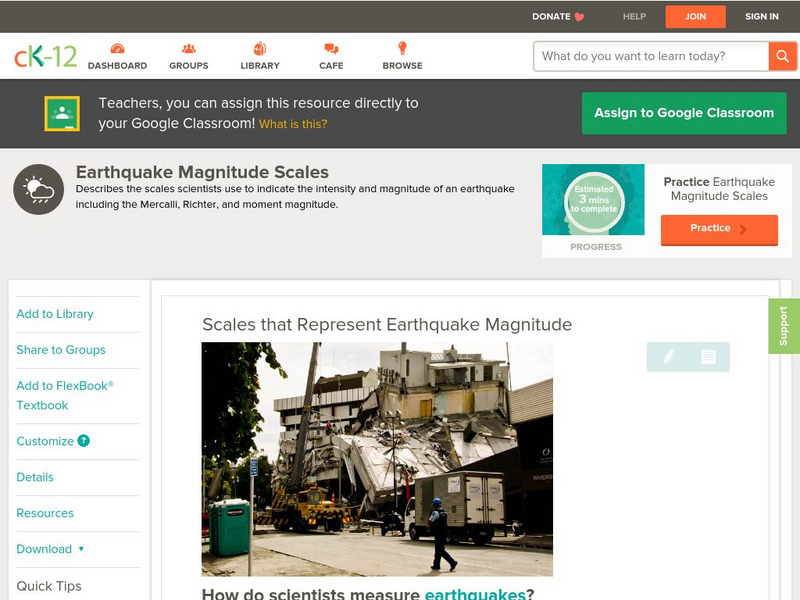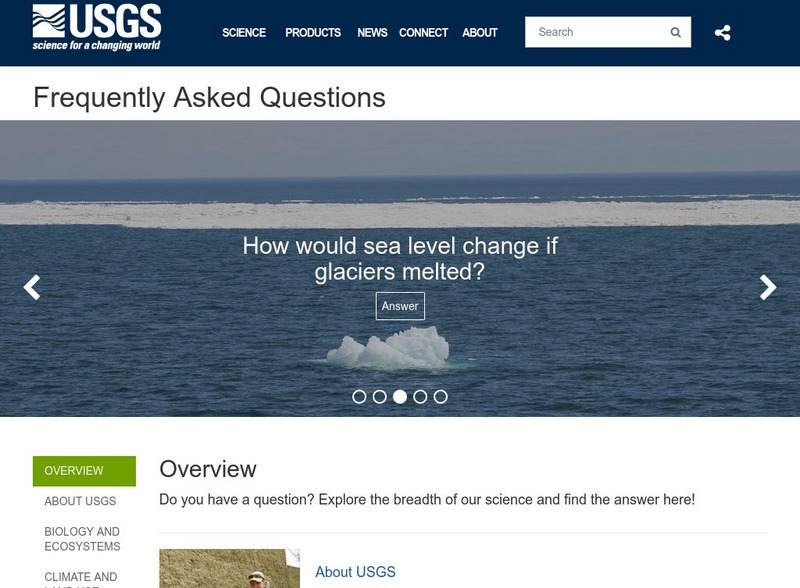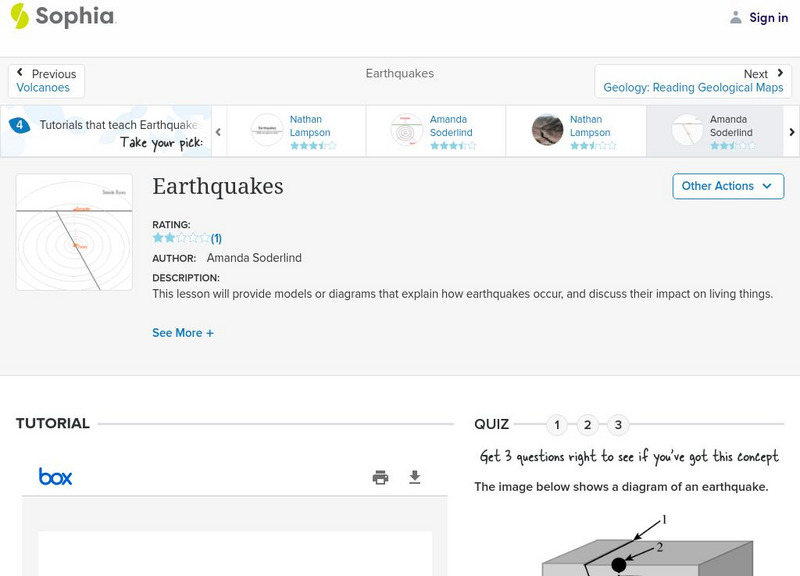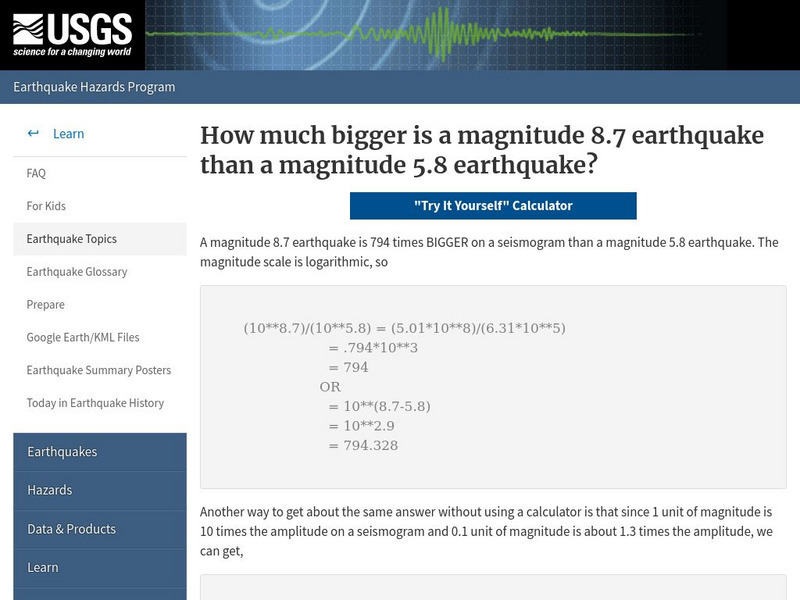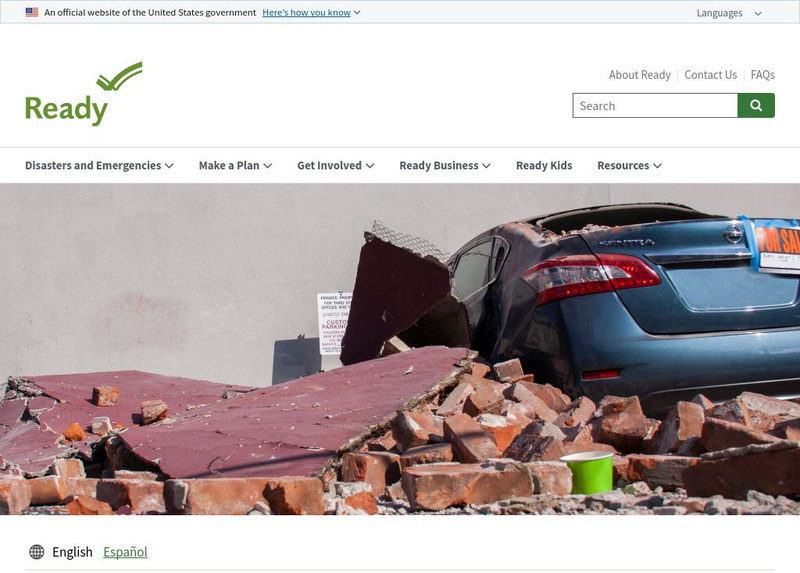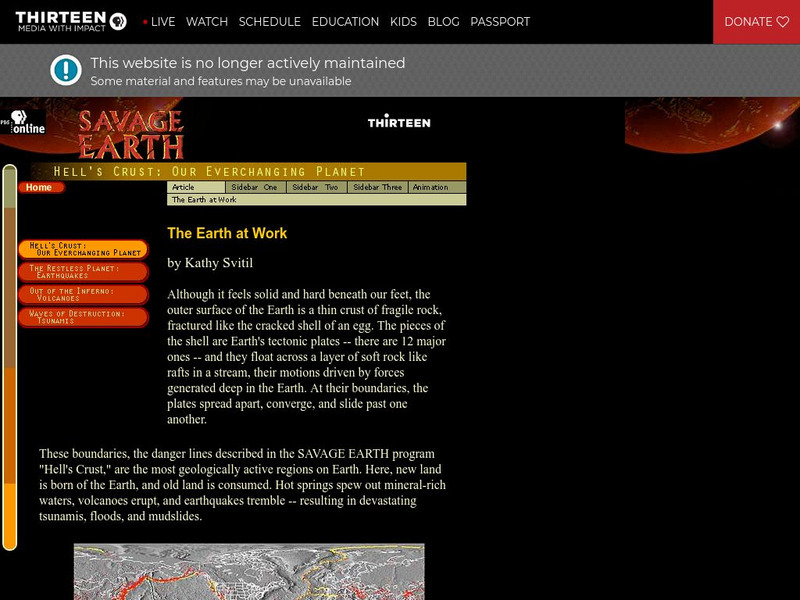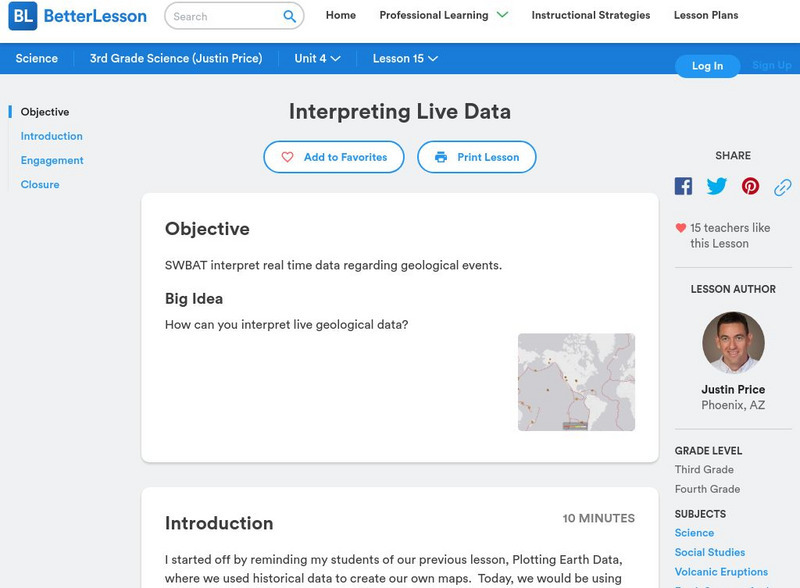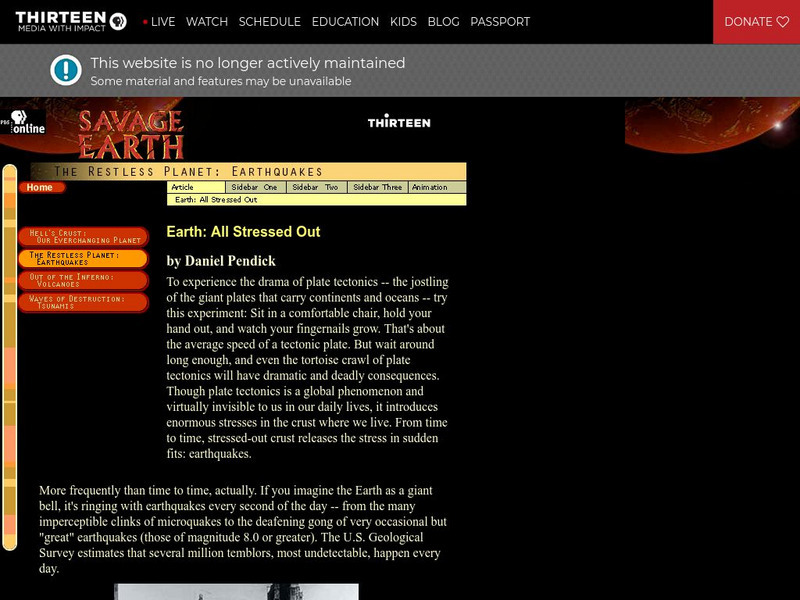CK-12 Foundation
Ck 12: Earth Science: Scales That Represent Earthquake Magnitude
[Free Registration/Login may be required to access all resource tools.] Covers the scales scientists use to measure the size and intensity of earthquakes.
American Geosciences Institute
American Geosciences Institute: Careers: Seismologist
Learn about the work of a seismologist, and find out what it takes to work in the field of seismology.
CK-12 Foundation
Ck 12: Physical Science: Longitudinal Wave
[Free Registration/Login may be required to access all resource tools.] What a longitudinal wave is, its compressions and rarefactions and what a P wave is.
CK-12 Foundation
Ck 12: Earth Science: Seismic Waves From Earthquakes
[Free Registration/Login may be required to access all resource tools.] The signs scientists might see prior to an earthquake occurring.
US Geological Survey
Usgs: Earthquakes Frequently Asked Questions
Use this resource to find answers to frequently asked questions about earthquakes.
US Geological Survey
U.s. Geological Survey: Search
The U.S. Geological Survey offers information for teachers and students interested on Earth Science research. Contains references to general information as well as current research and events.
Library of Congress
Loc: America's Story: San Francisco Earthquake
The 1906 earthquake in San Fransisco nearly wipes out the city. Read and view footage and information of this catastrophic event.
CNN
Cnn: Chile Earthquake
CNN briefly covers two earthquakes in Chile which occurred a few weeks after the devastating earthquake on February 27, 2010.
Library of Congress
Loc: America's Memory: Montana
Who were the first white explorers to "set foot in Montana?" Find out more about the Native American population living in Montana. Draw on the experience of the Native American population.
Sophia Learning
Sophia: Earthquakes
A quick, introductory lesson about how earthquakes happen, and what impact these natural events have on life.
US Geological Survey
U.s. Geological Survey: How Much Bigger?
This resource provides information about the magnitude scale, and allows users to try to figure out the difference between earthquake sizes.
Community Learning Network
Community Learning Network: General Tsunami Resources
Come and learn more about tsunamis through this collection of resources. This site offers a wide variety of links to increase your knowledge of this powerful force of nature.
Weather Wiz Kids
Weather Wiz Kids: Weather Safety
Click on the links to find guides to weather and natural disaster safety tips for earthquakes, floods, heat waves, hurricanes, lightning, mudslides, avalanches, thunderstorms, tornadoes, tsunamis, volcanoes, wildfires, and winter storms.
Ready
Ready: Earthquakes
This resource explains what an earthquake is, as well as what you should do to protect yourself in case of an earthquake. It contains several factsheets of information.
US Geological Survey
Usgs: Tsunami & Earthquake Research
The USGS provides an extensive section of information about tsunamis. The items presented are the basics of tsunamis regarding the Great San Francisco earthquake of April 18, 1906, tsunamis in the U.S. Pacific Northwest, and the 1998...
Other
Pacific Tsunami Museum: Home Page
This site from the Pacific Tsunami Museum provides a very extensive FAQ sheet that answers many questions about tsunamis, a tsunami picture of the month, and additional links to related topics.
NOAA
Noaa: International Tsunami Information Center: Tsunami, the Great Waves
National Oceanic and Atmospheric Administration defines a tsunami and links to related pages about what causes tsunamis and how lives can be saved from their devastation.
Michigan Technological University
Michigan Tech University: Where Do Earthquakes Happen?
An informative site that explains how and where earthquakes occur and the different types of faults. Contains maps and charts of fault lines, plate edges, and the continental plates. There are other links within the site of related...
University of Colorado
University of Colorado: Seismic Waves
Basic definitions and characteristics of the different wave types, diagrams, and speeds of the waves. Has links to information on seismology, earthquakes, and plate tectonics.
PBS
Wnet: Thirteen: The Earth at Work
This site from PBS provides a description of the mechanisms behind the plate movements, types of movements, and the resulting earthquakes, faults, and images and animations of several of the topics presented.
Scientific American
Scientific American: Earthquake Proof Engineering for Skyscrapers
Students construct a shake table, then build towers of different heights using Lego blocks, and test their stability on this platform. Next, they test towers with different sized bases, and towers made using different materials.
Better Lesson
Better Lesson: Interpreting Live Data
Learners will be using live data about volcanoes and earthquakes to look for patterns and understand why natural disasters may or may not be able to be predicted. Resources include helpful websites, a video of the lesson in action,...
NASA
Nasa: Our Restless Planet
This animation library is a great resource for a diverse list of earth science topics including: tsunamis, land subsidence, magnetic fields, volcanoes earthquakes, floods, and sea level changes.
PBS
Wnet: Thirteen: Savage Earth: The Restless Planet Earthquakes
Discussion of liquefaction and landslides which are two of the many effects of earthquakes.


